How To Minimise The Risks of Late/Non Payment of Invoices
How To Minimise The Risks of Late/Non Payment of Invoices
How To Minimise The Risks of Late/Non Payment of Invoices
How To Minimise The Risks Of Late/Non Payment Of Invoices
French revolutionary Bertrand Barère de Vieusac said that Britain was a “nation of shopkeepers.”[1]Being a) French, at a time when the two countries were either at war or highly ticked off by one another and about to launch another war, and b) a politician, we can safely assume that Barère de Vieusac was not being complimentary. However, one could say that he was correct, and he remains so to this day. In Britain, 99.9% of all businesses are small businesses (defined as fewer than 250 employees) and 99.5 of those are micro-businesses (1-9 employees). And for every one of these business owners, invoices that are paid late or not at all are the bane of their existence. Therefore, if you have decided to follow your dream of opening a business in 2024, you need to know how to ensure invoices are paid on time.
As experienced Risk Management and Debt Recovery Solicitors, below are our top tips for getting invoices paid by their due date:
Clear and Detailed Invoicing
The foundation of timely payments lies in clear and detailed invoicing. Make sure your invoices are accurate, easy to understand, and include all relevant details. This includes the business name, contact information, a breakdown of the products or services provided, the agreed-upon payment terms, and the due date. A well-structured invoice reduces the likelihood of disputes and sets clear expectations for both parties.
Set Clear Payment Terms
Establishing transparent and reasonable payment terms is crucial for managing expectations and fostering a healthy client-business relationship. Clearly communicate the payment due date, the accepted payment methods, and any late fees that may apply. Setting expectations from the outset will create a professional and organised image, encouraging clients to adhere to the agreed-upon terms.
Request Deposits or Partial Payments
Consider requesting a deposit or partial payment upfront for larger projects or long-term contracts. This provides an immediate infusion of cash and demonstrates the client’s commitment to the project. Additionally, partial payments can be structured at various project milestones, ensuring a steady cash flow throughout the duration of the work.
Utilise Invoicing Software
Accounting software will transform your life. Packages such as Xero, QuickBooks, and Kashflow, these tools offer features such as automatic invoice generation, recurring billing options, payment tracking, and automated reminders. Invoicing software saves time and reduces the likelihood of errors, ensuring that invoices are sent promptly and accurately.
Implement Early Payment Incentives
Encourage clients to pay invoices promptly by offering early payment incentives. This could include a small discount for payments made before the due date. While this may result in a slight reduction in revenue, the potential benefits in terms of improved cash flow and client loyalty will outweigh any losses.
Adopt Electronic Payment Methods
Promote the use of electronic payment methods, such as PayPal or online banking transfers, to expedite transactions. Electronic payments are faster, more secure, and provide a digital trail for record-keeping.
Follow Up Consistently
In most cases, an invoice is not paid because the debtor has simply forgotten. A quick email or phone call will normally result in a profuse apology and prompt payment. If this is not the case, you need to have a clear follow-up procedure in place, starting with friendly reminders and moving onto setting out the consequences if payment is not made by a certain date. Although you may worry that pestering for payment will lose you a customer/client, remember, this is your business; you have done the work and deserve to get paid. Late paying clients are not the type of people you want to work with anyway.
Personalise Communication
Automated reminders are great, but consider personalising communication with customers/clients. A personalised email or phone call expressing gratitude for their business and a gentle reminder about the upcoming payment deadline can strengthen the client-business relationship. Personalised communication also underscores the importance of the client to the business, potentially motivating them to prioritise the payment.
Offer Flexible Payment Options
To accommodate diverse client needs, consider offering flexible payment options. This could involve breaking down larger invoices into smaller, more manageable instalments or providing extended payment terms for trusted clients.
Establish a Late Payment Policy
Despite best efforts, some clients may consistently delay payments. In such cases, it is essential to have a clearly defined late payment policy in place. Outline the penalties for late payments, including any interest or fees that will be incurred. Communicate this policy to clients upfront, emphasising its importance for maintaining a mutually beneficial working relationship.
Conduct Credit Checks for New Clients
Before entering into business relationships with new clients, conduct thorough credit checks to assess their financial stability and payment history. Understanding a client’s creditworthiness can help small businesses make informed decisions about payment terms and whether additional precautions, such as requesting payment upfront, are necessary.
Strengthen Client Relationships
Get to know your customers/clients. Cultivate open and honest communication, address concerns promptly, and deliver exceptional service. People are more likely to prioritise timely payments when they feel a connection with your business and perceive it as a reliable and professional partner.
Wrapping up
The British Government has recognised the problems small businesses face in dealing with late invoice payments and extended payment terms. Hence, October 2023,
the Government announced it enhanced the Reporting on Payment Practices and Performance Regulations and conducted the Prompt Payment and Cash Flow Review.
New measures to improve payment for small businesses include:
- Extension of the Reporting on Payment Practices and Performance Regulations 2017 – The Government will advance legislation to prolong payment performance reporting obligations following consultations. This extension will introduce new metrics, including a value metric, enabling businesses and commentators to discern the value of invoices, including those paid late, and a metric for disputed invoices. Additionally, reporting on retention payments for construction sector businesses will be introduced.
- Provision of enhanced guidance to small businesses – The Government aims to offer more comprehensive advice on negotiating payment terms that better align with the needs of small businesses. Guidance will also be provided on the benefits of transitioning to digital processes, aiding businesses in receiving faster payments and effectively managing their cash flow.
- Expansion of the Small Business Commissioner’s powers – Plans are being made to broaden the responsibilities of the Small Business Commissioner, allowing them to conduct investigations and publish reports based on anonymous information and intelligence. This expansion will necessitate primary legislation and will be subject to the legislative timetable.
The Government states that these new measures will benefit UK businesses by nurturing a more resilient payment culture and providing them with a more predictable cash flow. This, in turn, empowers businesses to allocate resources with greater certainty, fostering growth. Reducing time spent chasing payments will liberate businesses from focusing on other activities conducive to their expansion.
To find out more about any matters discussed in this article, please email us at info@43legal.com or phone 0121 249 2400.
The content of this article is for general information only. It is not, and should not be taken as, legal advice. If you require any further information in relation to this article, please contact 43Legal.
[1] He made the comment on 11 June 1794 in a speech to the National Convention: “Let Pitt then boast of his victory to his nation of shopkeepers”. Although it is widely believed the insult was made by Napolean, it is unlikely he ever uttered the words.











